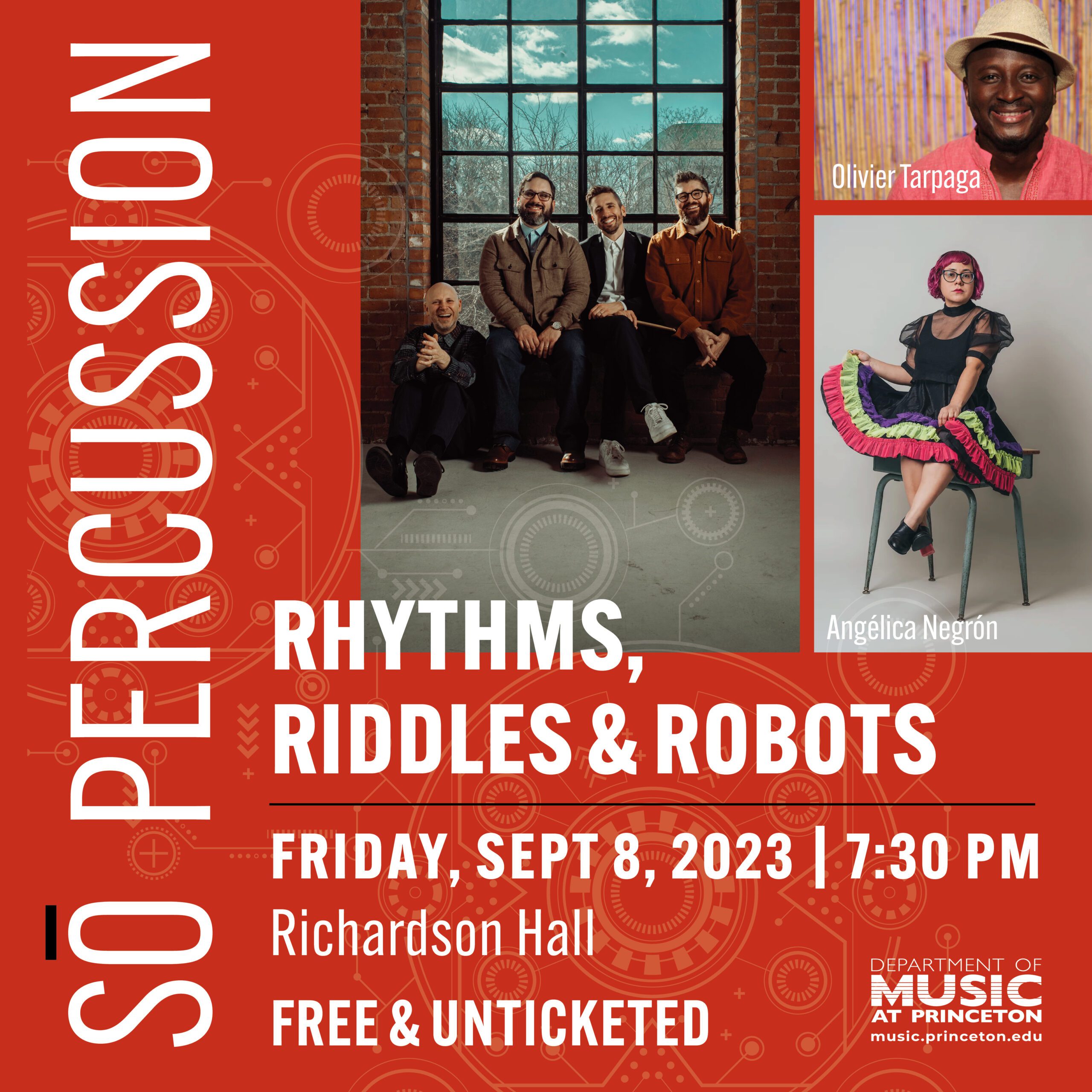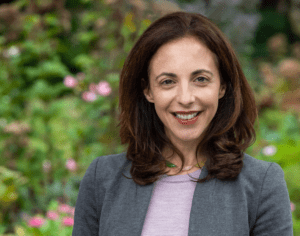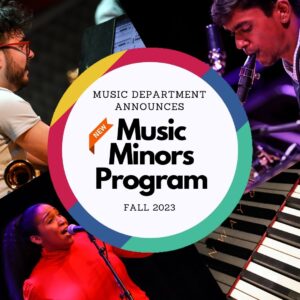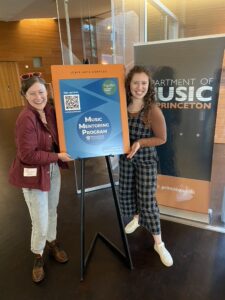By: Adam Sliwinski, Sō Percussion: Performers-in-Residence
For Sō Percussion’s concert on September 8th in Richardson auditorium, inaugurating our tenth year as the Edward T. Cone Performers-in-Residence, we are exploring rhythms which transcend their cultural context, flexible pieces of music that turn abstract structures into music, and the presence of electronics, robots, and technology in our everyday lives.
The three composers featured in the program are Jason Treuting, Angélica Negrón, and Olivier Tarpaga; Each are composer-performers (and even choreographers), and each one has distinctive ways of incorporating these trades.
Sō Percussion member Jason Treuting’s project Go Placidly with Haste is a flexible work comprised of several smaller movements that can be combined to each performer’s liking and played on any instruments they choose. It is a continuation of his work Amid the Noise, which Sō Percussion recorded in 2006 and has performed all over the world. We will be bringing some musicians from Princeton into the piece for the version at Richardson.
Angélica Negrón’s work Inward Pieces has a curious and unique element: percussion robots that perform alongside us. Although the word “robot” brings to mind anthropomorphic androids, all a robot requires to be percussive is a little poking stick to hit a surface. Negrón’s robots, which were designed by Nick Yulman, sit on little platforms and poke upward at whatever object sits on top of them, in this case plastic cubes filled with water, hardcover books, and tin kitchen pots. She programs them to perform sequences from midi tracks, which we accompany by following a click track in our ears.
The third collaboration features Olivier Tarpaga, Director of African Music Ensembles at Princeton University. Olivier describes creating music as cooking a dish: you want to achieve balance in the spices and flavors, but it is an intuitive and improvisational affair. Whenever we are about to start creating new music, he exclaims “let’s cook!” This elegant metaphor suggests that assembling the recipe is only part of the process — anything can change while we are combining the ingredients.
In his new piece for Sō Percussion, set to premiere December 2nd at Carnegie Hall, Olivier deftly cooks up ideas from West African percussion playing to translate into Sō Percussion’s realm. For the performers, the process feels as much like a dancer learning choreography as it does a musician learning a score. He teaches us by rote, referencing voice memos from his smartphone and, during practice, he sets about varying, altering, and riffing on the original ideas (often to the point that the original theme is transformed into something quite different). This process of invention and variation means that we learn Olivier’s language as we learn the notes in the piece.
As rewarding as it would be for us to learn traditional music from Burkina Faso, the goal of our collaboration is to create a new percussion quartet that bears the mark of Olivier’s influences and ideas, some of which are traditional and many of which are not. Olivier uses the phrase “African is contemporary” to remind us that no single idea of a culture should limit any artist’s vision.
In our concert at Princeton, we will be previewing Olivier’s piece as a work-in-progress. He is developing a few enticing concepts that connect West African drumming with contemporary percussion:
First is to use the five-octave marimba, which is a descendent of the many different types of balifon that come from Africa, and which are still used there to this day. While writing for all four of us to play on one marimba, first with fingers and then with mallets, Olivier composed several melodic motives for us to repeat and combine. He soon realized that he was unconsciously referencing the music that he heard in his grandmother’s village as a boy. He also realized that using multiple players on one balifon is rare in Burkina Faso, but not in that village, where several musicians play on an unusually large instrument.
Second is to take music for the dun dun drums, which are played with sticks, and to see what we would do with it. Because we normally play with sticks as well, the technique for this is quite similar. We have been trying it with tom-toms for the skin sound and wooden slats for the CLACK sound of the rim.
The most challenging style to translate is the djembe playing. Djembe are the iconic hand drums found in many West African traditions. Playing them properly requires an enormous investment of time and training, and none of us are particularly skilled with them. Olivier came up with an idea to create an alternative world of contemporary djembe technique by knocking on an amplified table, where the traditional hand drumming context is removed but the challenges are similar. He set about teaching us a set of patterns to memorize and some variations to apply.
There is a repertoire of “table top” music in contemporary percussion, particularly pieces like Thierry De Mey’s Table Music, and going all the way back to John Cage’s Living Room Music. The idea that we could inhabit this familiar and neutral territory while still learning music influenced by Burkina Faso is exciting for us, and speaks to Olivier’s fluency in a dazzling array of creative genres. Olivier is also a first-rate choreographer, so I think he also didn’t want to miss a chance to make a hand ballet for percussionists!
It is the richness of the community in the music department that makes these kinds of collaborations possible. Our residency as a percussion ensemble is unique in the history of American universities and reaches composers, scholars, artists, and students of all kinds to invent new kinds of repertoire. We are so grateful to our colleagues and students at Princeton who allow us to dream bigger each year.
In Other News
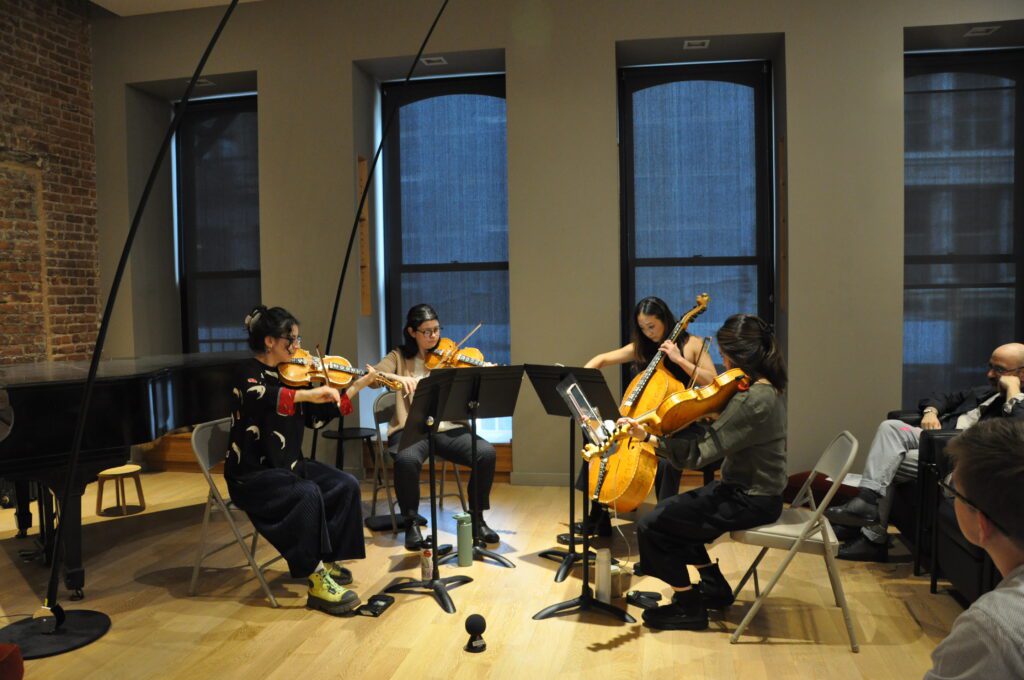
Resonant Revival: How a Norwegian Folk Fiddle Found a New Voice at Princeton
May 19, 2025
Dan Trueman, Chair of the Music Department, introduces Norwegian folk instruments to a new generation of composers and performers.
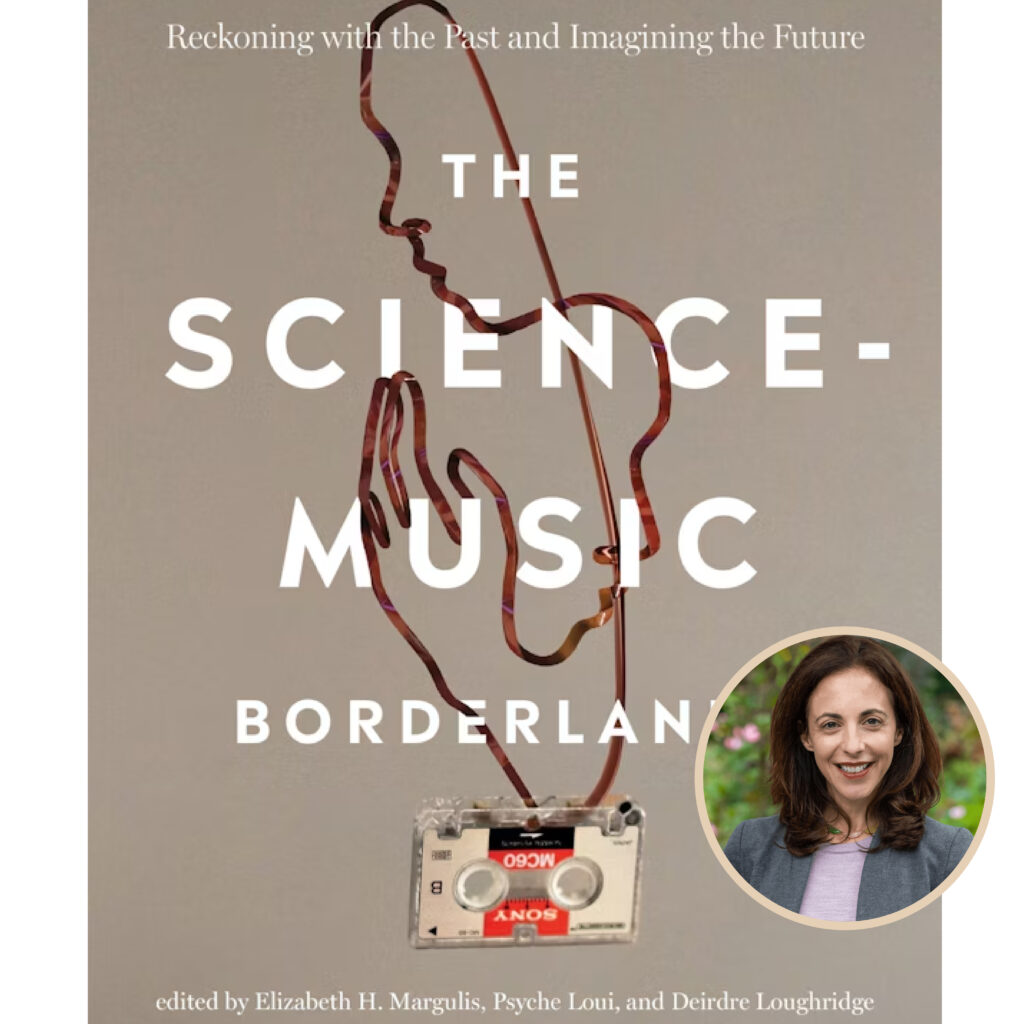
Elizabeth Margulis on the Frontiers of Music Cognition
Jan 22, 2025
The Department of Music is thrilled to congratulate musicology professor and Director of Graduate Studies Elizabeth Margulis, who has received the Ruth A. Solie Award for her editorial contributions to The Science-Music Borderlands: Reckoning with the Past and Imagining the Future.
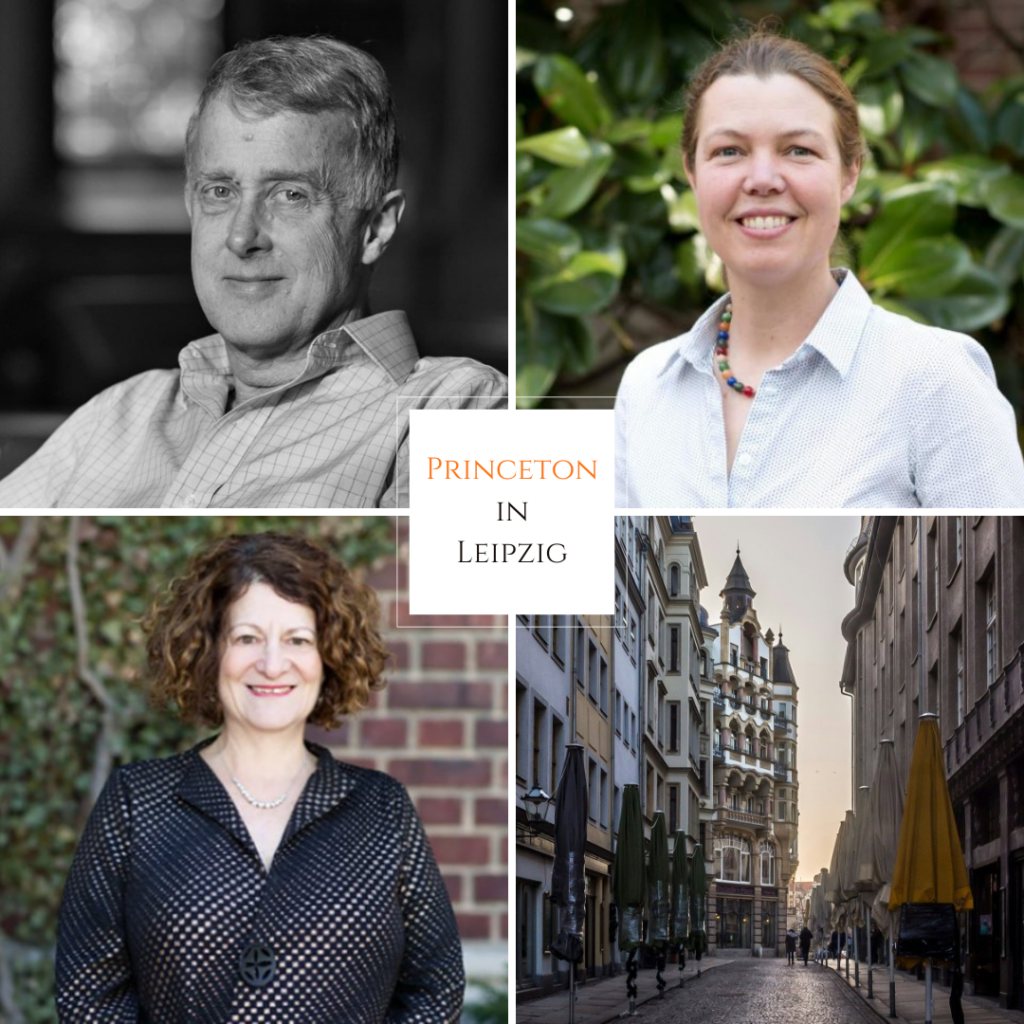
Announcing the Launch of Princeton in Leipzig
Jan 7, 2025
Enrollment in “Princeton in Leipzig” has been extended to March 2, 2025! The Princeton Music Department is excited to announce the launch of Princeton in Leipzig, a summer study abroad …

